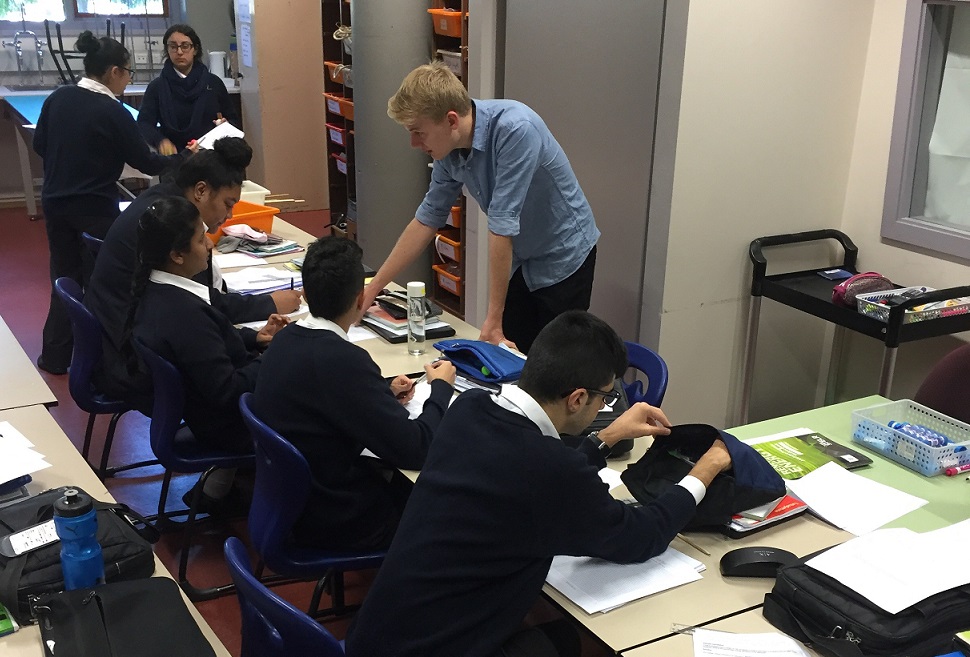Volunteering: learning beyond the classroom
Bachelor of Science student, Jason Hobson, discusses his time volunteering as part of the In2Science and Science Delivery programs.
When I started my university life at just 17 years and 5 months old, I was very immature and naive about the reality of my academic goals and future career prospects. I had known that I wanted to study a Bachelor of Science but also believed I was on my way to obtaining a PhD in particle physics.
A lot has changed since then, thanks to the many experiences I have had in my two years of study. Looking back on the process that got me to the place I am today, I realise that I could have used a lot of advice and encouragement back in high school. It was for this reason that I decided to join both the In2science and Science Delivery programs.
In2science and Science Delivery are programs that train University students to go into high schools and get students excited about Science and Maths. Both programs work with high school students in lower socio-economic and/or regional areas of Victoria, as students in these schools are less likely to know someone who studies Science or who goes to University.

Not having the guidance or encouragement that I now believe I needed just a few years ago, I thought what better thing to do than to give the support I needed to someone else as a mentor in a high school with In2science. As an In2science mentor, I have worked with a year 8 science class and their teacher each week, for 10 weeks. Just recently, I could answer a student’s question about the photoelectric effect during their renewables topic in class, questions that would have otherwise gone unanswered because a teacher simply doesn’t have time during class.
It’s also a great time for me to be able to give students advice about subject choices and career prospects, which they respond to well because it’s coming from someone who is a similar age to them. Another great benefit that this volunteering experience brings is purely personal. During my time mentoring with In2science, my science communication skills have developed substantially. Being able to explain complex topics to students, who are at times disengaged, is a valuable skill.
I signed up to Science Delivery under the same rationalisation as In2science. I had initially only thought about the benefit I could bring to students who need it most. But I soon learnt about the mutual success that I could achieve while also encouraging young students to continue their science studies. Science Delivery is a great program, where a group of university students go into local and regional high schools and deliver science presentations in combination with running small workshops. Providing unscripted presentations on multiple scientific processes was one of the valuable skills I gained through this program, often impromptu explanations are required with Science Delivery and you are soon forced to trust in your own knowledge in front of a larger audience.

One of the great communication successes that I shared with my peers during Science Delivery in 2017 was developing a laser workshop aimed at measuring the diameter of several animal hairs using diffraction patterns. This workshop ran for students in years 8 to 10, who were mostly unfamiliar with the topic; their positive responses were an indication that our way of communicating the concepts was successful.
I happily signed up to both programs again for Semester 1, 2018 based on the fantastic experiences I had in 2017. I also now see the importance of communication skills, when thinking about the difficulties scientists have in communicating climate change. What started out as helping young students with the advice and encouragement that I would have loved, turned out to be some of the most valuable experiences of my time at university. Not only have I been encouraged to pursue a career in science communication, but I now have more confidence in my ability to communicate scientific concepts to people with non-scientific backgrounds.
Jason Hobson, Bachelor of Science student